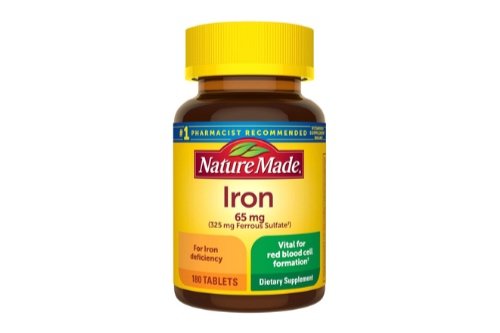Carnivore Diet and Maximizing Iron Absorption
Essential Strategies for Optimal Health
The carnivore diet, a regimen centered around the consumption of animal products exclusively, has garnered attention in the nutrition community for its impact on various health aspects, including iron absorption. Iron is a vital mineral essential for oxygen transport in the blood, and its deficiency can lead to anemia, a condition characterized by fatigue and weakness. The carnivore diet, inherently rich in heme iron from animal sources, offers highly bioavailable iron to its adherents.
Absorption rates of heme iron, the form found in animal products, are significantly higher compared to non-heme iron present in plant-based foods. This bioavailability is a crucial factor in preventing iron deficiency, especially in diets excluding plant sources of iron. Despite its potential benefits, the carnivore diet raises questions regarding overall nutritional balance as it lacks certain foods traditionally recommended for iron absorption, such as those high in vitamin C.
The implications of the carnivore diet on health and iron absorption highlight the importance of considering both the quantity and quality of iron intake. While the diet provides a potent source of iron, other factors—such as the exclusion of food groups and the body's ability to regulate iron absorption effectively—play a role in determining its overall impact on an individual's health. Therefore, individuals following this diet are encouraged to monitor their nutrient levels closely to ensure they attain their dietary iron requirements while maintaining overall health.
Understanding the Carnivore Diet
The carnivore diet emphasizes the consumption of animal products, particularly meats that inherently contain heme iron, crucial for oxygen transport within the body.
Fundamentals of Carnivore Nutrition
The fundamentals of carnivore nutrition revolve around consuming exclusively animal products, devoid of plant-based foods. This means an individual on this diet mainly eats meat, fish, poultry, liver, and other organ meats. They are getting their essential nutrients, including proteins, fats, vitamins, and minerals from these sources—each playing a critical role in systemic bodily functions.
Common Sources of Iron in the Carnivore Diet
Iron in the carnivore diet stems primarily from:
Red Meat: (What wine goes well with red meat?) Beef, lamb, and venison (What wine goes well with venison?)
Poultry: Chicken, turkey, and duck
Fish: Particularly shellfish (What wine goes well with shellfish?) and oily fish
Liver and Other Organ Meats: Identified as high in iron and other essential micronutrients
These iron-rich foods support hemoglobin formation and optimally facilitate oxygen transport across the body.
Comparing Heme and Non-Heme Iron
Heme iron, found in animal products, is absorbed at a higher rate compared to non-heme iron, which is present in plant-based foods. The carnivore diet contains mostly heme iron, which is more readily used by the body. Non-heme iron requires certain other conditions for optimal absorption, which may include the presence of vitamin C and a higher stomach acidity. Consequentially, individuals on a carnivore diet may naturally experience efficient iron uptake.
Roles of Iron in the Body
Iron is crucial for several bodily functions, particularly related to oxygen and energy. It's essential for transport, metabolic processes, and immune system maintenance.
Iron's Function in Hemoglobin and Myoglobin
Hemoglobin, found in red blood cells, and myoglobin, found in muscle cells, are both vital proteins that contain iron. Hemoglobin binds oxygen in the lungs and transports it to tissues throughout the body where it's released to permit aerobic respiration. Myoglobin serves as an oxygen reservoir and facilitates oxygen transport within muscle cells, ensuring they have enough of this essential element during periods of intense activity.
Metabolic Processes and Energy Production
Iron is a key player in metabolism and energy production. It acts as a cofactor for enzymes involved in electron transport and ATP synthesis, which are part of cellular respiration processes. This activity helps cells convert nutrients into usable energy, keeping the body's metabolism running efficiently.
Iron and Immune System Support
Iron also supports the immune system. It is necessary for the proliferation and maturation of immune cells, especially lymphocytes, which are crucial in the body's defense against pathogens. Moreover, iron plays a role in the functioning of enzymes that work to neutralize harmful free radicals, thereby contributing to the immune response.
Maximizing Iron Absorption on a Carnivore Diet
In a carnivore diet, the focus is on consuming animal-based foods, which are generally high in heme iron. Optimizing iron absorption from these sources is crucial for maintaining iron levels and requires an understanding of both enhancers and inhibitors of iron uptake.
Optimizing Iron Uptake from Meat
To maximize iron uptake from meat, it is important to consume meats that are high in heme iron. Heme iron, found predominantly in red meats, is more readily absorbed by the body than nonheme iron which is present in plant-based foods. For instance, choosing a fatty ribeye steak or organ meats such as liver can enhance iron bioavailability due to their higher heme iron content.
The Impact of Vitamin C and Other Enhancers
Vitamin C, or ascorbic acid, significantly boosts iron absorption. Including vitamin C-rich foods in a meal, such as adding a squeeze of lemon juice, can increase the uptake of iron from the digestive tract into the bloodstream. Other iron enhancers include certain amino acids found in animal protein that can promote the bioavailability of iron.
Trust me, the easiest way to buy vitamin C is through online retailers!
Understanding and Managing Iron Inhibitors
While a carnivore diet is low in known iron inhibitors like phytates (found in legumes and grains), it is still essential to understand and manage other inhibitors. For example, excessive intake of dietary calcium can compete with iron for absorption, although this is less pronounced with animal-based calcium sources. Polyphenols and tannins, though less commonly found in a carnivore diet, can also inhibit iron absorption when consuming plant-based foods or drinks, such as tea or coffee. To manage these inhibitors, it would be advisable to consume calcium-rich foods and beverages a few hours apart from iron-rich meals.
Iron Deficiency and Overload
Maintaining the right balance of iron is crucial for health. In discussing the carnivore diet, attention to iron absorption is fundamental as the diet impacts one's risk of developing iron deficiency anemia or iron overload.
Identifying and Addressing Iron Deficiency Anemia
Iron deficiency anemia occurs when the body lacks enough iron to produce hemoglobin, the substance in red blood cells that carries oxygen to the body's tissues. Symptoms can include fatigue, weakness, pale skin, and shortness of breath. One should seek to consume heme iron, found in animal products such as red meat, which is absorbed more efficiently than non-heme iron from plant sources.
Diagnosis: It typically involves a complete blood count and serum ferritin test to measure iron levels.
Treatment: Depending on the severity, it may range from dietary adjustments to iron supplements or treatment of underlying causes of blood loss.
Risks and Symptoms of Iron Overload
Iron overload, particularly a concern for those with hemochromatosis, can lead to too much iron being absorbed from the diet. The body has no natural way to eliminate excess iron, which can accumulate in and damage organs. Symptoms of iron overload include joint pain, abdominal pain, fatigue, and irregular heart rhythms.
Screening: Regular blood tests can help detect iron overload early, essential for preventing damage.
Management: For those with conditions such as hemochromatosis, reducing iron intake and medical therapies like phlebotomy are recommended.
Monitoring iron levels is an essential step for individuals following a carnivore diet to avoid the extremes of iron deficiency and overload while maximizing overall health benefits.
Iron Requirements and Dietary Considerations
Iron is essential for various bodily functions, including oxygen transport and cellular energy production. The carnivore diet can provide iron, particularly heme iron, which is readily absorbed by the body. Understanding daily iron intake recommendations and special considerations for different populations ensures optimal iron status.
Daily Iron Intake Recommendations
Adult men and postmenopausal women should aim for a Recommended Dietary Allowance (RDA) of 8 milligrams of iron per day. Pre-menopausal women and pregnant women have higher requirements, with RDAs of 18 milligrams and 27 milligrams per day, respectively, due to menstruation and the demands of fetal development.
Special Considerations for Different Populations
The iron needs of individuals can vary based on age, sex, and physiological status. For example:
Men: Generally require 8 milligrams daily, and the carnivore diet can be an efficient way to meet this need due to its emphasis on meat, which is rich in heme iron.
Women: Non-menopausal women typically require 18 milligrams daily due to losses from menstruation.
Pregnant Women: The need increases to 27 milligrams daily to support fetal development.
It is important to note that those following a carnivore diet can potentially maximize iron absorption due to the high bioavailability of heme iron found in animal products.
Supplementation and Fortification Strategies
In the context of a carnivore diet, where plant sources of iron are absent, appropriate supplementation and fortification strategies are paramount in maintaining optimal iron levels and ensuring efficient iron absorption.
When to Consider Iron Supplements
Individuals practicing a carnivore diet might find it necessary to use iron supplements when blood tests indicate an iron deficiency that cannot be corrected through diet alone. Iron supplements should be taken under the guidance of a healthcare provider to tailor the dosage according to specific needs and to monitor for potential side effects, such as gastrointestinal discomfort.
Adult Men and Postmenopausal Women: Generally require less iron and should supplement cautiously.
Menstruating Women: Often need more iron and may benefit from supplementation if dietary intake is insufficient.
When it comes to iron supplement, online shopping is the way to go!
The Role of Fortified Foods
Fortified foods can play a crucial role in preventing iron deficiency, especially for those on restrictive diets like the carnivore diet. Fortifying animal-based foods with iron involves the addition of iron to foods that do not naturally contain it or contain it in insufficient quantities.
Examples of Fortified Foods:
Breakfast cereals: Often fortified with added minerals, including iron.
Enriched flour: Used in bread and pasta, fortified with iron to replace what is lost during processing.
The utilization of fortified foods provides an alternative or complementary approach to iron supplementation to help maintain adequate iron levels without depending solely on supplements.
Scientific Evidence and Ongoing Research
In examining the relationship between a carnivore diet and iron absorption, it is essential to refer to clinical studies and current research that offers evidence-based insights.
Reviewing Clinical Studies on Iron and Carnivore Diet
Scientific literature suggests iron absorption from animal-based foods is generally more efficient than from plant sources. PubMed provides access to studies indicating that heme iron found in meat is more readily absorbed by the body, which could imply a carnivore diet's potential to provide adequate iron intake. For instance, clinical evidence reveals that an all-meat diet could maintain iron homeostasis due to meat's heme iron content and absence of iron absorption inhibitors commonly found in plant foods. However, one must consider individual differences in iron status and dietary compositions, which could affect overall iron bioavailability.
Emerging Insights from Ongoing Research
Current research is exploring the broader health implications of the carnivore diet beyond iron absorption, considering factors such as vitamin C's role in enhancing non-heme iron absorption and the absence of it in meat-exclusive diets. Additionally, investigations are assessing possible long-term effects of high-meat diets on overall nutritional status and chronic disease risk. The scientific community anticipates these findings, as they will provide more comprehensive guidance on managing diet for optimal nutrient intake, including iron.







